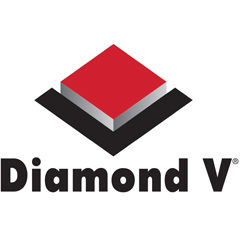All of these things could be true, but for most of us, we have all been there and exemplified the same traits at some point or another.
As kids, the entire world is given to us each day. Everything is about us and for us until we leave the nest and venture forward in life. But how do we change gears and thought processes to be successful in our operations?
To give some perspective, Gallup Polls show millennials are three times more likely to change jobs over the next year. Twenty-one percent of millennials have changed jobs in the last year. And the worst part: Gallup Polls show this rate of job change is costing the economy $30.5 billion a year.
From our own experience, these numbers come as no surprise to most of us, as many have experienced these job-changing effects.
But as we dive into the “why,” we find 29 percent of millennials define themselves as not engaged at work. More than half of them think they won’t be at the same job in one year. So where do we start to bring a solution to many of our challenges as feedyard or ranch managers? For one, we have to stop beating up millennials as leaders.
We have all done it; I’ve done it in the last year – and we need to stop. And if this is routine, I promise your turnover will be higher than the statistics. We have to accept they are part of our business, and these fine young people want to be part of something.
These fine young people want to be a part of growth. They want to know they have opportunity within your operation (although I think manbuns and skinny jeans should be outlawed). That being said, have you sat down with your crew and talked to them about where the operation is headed? Do you create a culture of teaching and training? Here are a few suggestions:
-
Look to have a meeting once a month or once a week with your staff – Tell them your vision. Tell them the operation’s purpose. Tell them where you think they will be in one year, three years or five years. It is imperative they know your “why” and you help them get to know their own “why.”
-
Don’t just “tell,” ask – Begin asking questions that stimulate conversations and thoughts. They stimulate the synapses of the brain, and conversations begin to happen where we learn, solve problems, and progress is made.
-
We need to teach them, train them and pay them – The only thing worse than training them and having rock stars leave, is not training them and having them stay. For example, have you thought about bringing in your local or consulting vet to give a one-hour training on replacement heifer health and performance strategies?
What about asking your local banker to come in and talk about personal finances and developing their personal budget? In this kind of learning environment, you create loyalty by the fact you care for their success. You create a culture they want to be a bigger part of, and they don’t want to leave.
-
Carefully select your employees – The hiring process is a whole other article, but as we hire, start by slowing down. Don’t just hire the first warm body you talk to. We are all guilty of this because we don’t want too much help standing around and consequently, when we do hire, we needed the help two weeks ago.
Slow down during the interview; interview them multiple times if you need to and interview them with their spouse. Find out if they’re humble, hungry and smart. These are three key traits for building teamwork. We want to focus on and look for traits such as character, integrity, humility, passion, smart and drive. These are things we cannot teach.
By doing these things, you can create loyalty in the fact they know you care for their success. You create an environment they want to be a bigger part of, and they won’t want to leave. There are bright minds, not just millennials, looking for this – high school kids, immigrants, college dropouts, burnt-out long timers, and many others looking for the right opportunity.
It starts with three simple, yet powerful questions: How are you today? What are you working on today? How may I or we help you accomplish that, or what else can we do to help you? We just have to take the time to ask. ![]()
ILLUSTRATION: Illustration by Ray Merritt.

-
Nels Lindberg
- Animal Medical Center
- Production Animal Consultation
- Email Nels Lindberg







